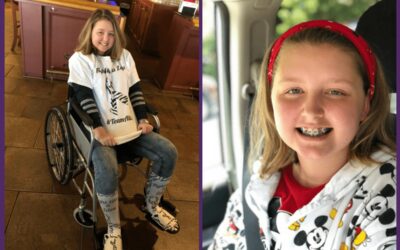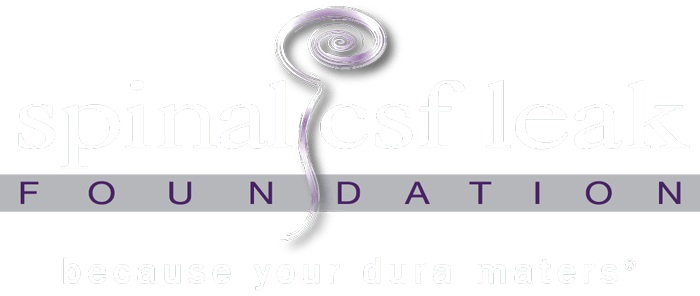It took years before Allie was able to find a proper diagnosis. But eventually she was able to get treatment for her spinal CSF leak.

Allie McDaniels just got braces. That might not seem like a huge achievement for a 13-year-old girl, but for this particular 13-year-old girl, it was a very big deal. Up until this past April, Allie had been too sick to do much of anything—but after surgery to repair her spinal cerebrospinal fluid (CSF) leak, she is now able to be up and about, finishing up the school year, and living the life of a typical teen.
Allie first became ill when she was in the first grade. It was a presumed case of viral meningitis that seemed to resolve after a course of antibiotics, but became a turning point in her health journey. She began experiencing headaches and other mysterious symptoms, including a very specific area on her back so sensitive that touching it caused her terrible pain and a feeling of numbness in her legs. Allie was in and out of hospitals for years, and was eventually diagnosed with hypermobile Ehlers-Danlos Syndrome (a heritable disorder of connective tissue causing lax joints and affecting connective tissues throughout the body) as well as POTS (postural orthostatic tachycardia syndrome). Still, even with those diagnoses, she continued to struggle with symptoms that defied treatment. By October of 2017, her back and head pain were so intense that she couldn’t sit up without vomiting. Her doctors thought it might be a migraine headache, but a pain specialist evaluated her and immediately recognized that what Allie was dealing with was a spinal CSF leak. Her cerebrospinal fluid, which surrounds, cushions, and protects the brain and spinal cord, was somehow leaking out through a small tear or hole in her dura mater, the tough covering that normally contains that fluid. It was this loss of cerebrospinal fluid, the doctor suspected, that was causing her headache and other symptoms to become so much worse when she was upright.
Allie was referred to Duke University, where she saw Dr. Michael Malinzak, a neuroradiologist who performed imaging studies that revealed the likely spot of the leak. He gave Allie several rounds of fibrin sealant epidural patches, each of which offered partial, but not long-lasting, relief. After a few months, at Dr. Malinzak’s urging, Allie and her family began to consider surgical options.
In March of 2018, Allie flew to Los Angeles, where Cedars-Sinai neurosurgeon Dr. Wouter Schievink performed surgery on her spine in order to fix the spot that was causing her so much trouble. Since the surgery, all of Allie’s leak symptoms—including the positional headaches, nausea, numbness, and tingling—are gone.
“It was a really scary decision to make about whether to do this,” said Elizabeth, Allie’s mom, “and I have to say it’s the best decision we’ve ever made. She’s still under restrictions, but she’s able to do things she wasn’t able to do before the surgery. We’re so happy that we did it.”
Allie checks in with Dr. Schievink from time to time as she continues to recover, but she’s hopeful that her days of living with a spinal CSF leak are over. She no longer uses a wheelchair or a walker, and is able to be upright and active without any signs of a low-pressure headache. Just last week, she was able to go swimming for the first time.
One of the things Allie is most excited about now that she’s feeling better is being able to play in her youth billiards league. Billiards are her passion, and she was even able to compete two weeks ago for the first time since last fall. Two of the top women’s pool players in the world came to visit her at the tournament, and one of them gave her a special pool stick that’s small enough for her to use while in a wheelchair if she needs to.
Allie and her mom have been sharing their story in the hopes that their experience might be useful for other people who might be dealing with something similar. They recently launched a “TeamAllie McDaniels” Facebook page for people interested in following along in their journey. Elizabeth’s advice for other parents having to advocate for their kids in the face of a challenging diagnosis is simple: “Trust your instincts. A doctor sees your child for minutes at a time; we see our kids 24 hours a day. So, when you know something’s wrong, don’t let anyone tell you not to listen to that instinct. You know what’s right for your kid.”
Intracranial hypotension due to spinal CSF leak is often called “low pressure headache”, which references the low volume and pressure of CSF that causes the most common symptom of positional headache. June 23 is Low Pressure Headache Awareness Day during Migraine and headache Awareness Month, #MHAM. Learn more HERE.
